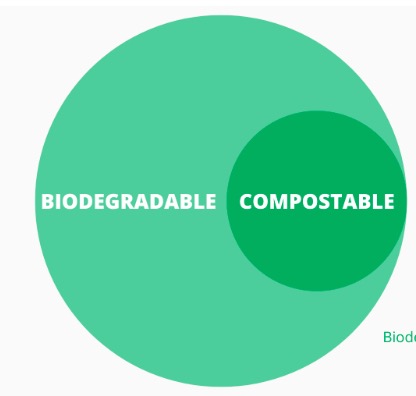As sustainability becomes a growing priority across industries, many businesses and consumers are shifting toward environmentally friendly packaging options. However, with terms like biodegradable, compostable, degradable, and eco-friendly often used interchangeably, identifying whether a plastic bag is truly biodegradable or compostable can be confusing.
This guide will help you understand the key differences, what to look for, and how to verify if a plastic bag meets environmental standards.
1. Understand the Difference Between Biodegradable and Compostable
To identify the correct product, it is important to first understand the terminology.
Biodegradable plastics can be broken down by microorganisms such as bacteria and fungi into water, carbon dioxide, and biomass over time. However, there is no fixed timeframe or specific environment required for the process.
Compostable plastics, on the other hand, are a subset of biodegradable materials that must degrade under specific conditions within a certain period, usually within 90 days. These conditions are often found in industrial composting facilities. Compostable plastics leave no toxic residue and contribute positively to compost quality.
In short, while all compostable plastics are biodegradable, not all biodegradable plastics are compostable.

2. Look for Recognized Certifications
The most reliable way to verify whether a plastic bag is biodegradable or compostable is by checking for third-party certifications. Reputable products will carry logos or marks from recognized testing bodies.
For compostable bags:
- EN 13432 certification in Europe
- ASTM D6400 standard in the United States
- Certifications from BPI (Biodegradable Products Institute), TÜV Austria (OK Compost INDUSTRIAL and OK Compost HOME), or DIN CERTCO
For biodegradable bags:
- ISO 17088 or ISO 14855
- TÜV Austria’s OK biodegradable SOIL, WATER, or MARINE certifications
If the bag has no such marks, it may not meet any formal environmental standards.
3. Review the Material Composition
Compostable and biodegradable bags are typically made from materials that are either plant-based or engineered to degrade. Common materials include:
- PLA (Polylactic Acid) derived from corn starch or sugarcane
- PBAT (Polybutylene Adipate Terephthalate), a biodegradable polymer
- PHA (Polyhydroxyalkanoates), produced by microorganisms
- Starch blends from corn, potato, or tapioca
Avoid bags labeled as made from polyethylene or polypropylene with only the term degradable. These often break into microplastics rather than fully biodegrading.
4. Read the Product Label Carefully
Legitimate biodegradable or compostable bags usually include clear information about:
- The timeframe for degradation
- The conditions required for breakdown (e.g. industrial composting)
- The material components
- The standards or testing methods used
If the packaging only uses general claims such as environmentally friendly or green without details or certifications, further investigation is advised.
5. Be Cautious of Greenwashing
Greenwashing occurs when companies make exaggerated or false environmental claims. Be wary of:
- Products that claim to be biodegradable or compostable without certifications
- Labels that say degradable or oxo-degradable without explanation
- Bags that promote eco-friendliness without any third-party testing data
Always look for third-party verification rather than relying on marketing language.
6. Contact the Manufacturer or Supplier
If you are sourcing biodegradable or compostable bags for your business, do not hesitate to ask for documentation. Reliable manufacturers should be able to provide:
- Certification reports such as EN 13432 or ASTM D6400
- Material Safety Data Sheets (MSDS)
- Biodegradability test reports
This not only helps verify the claims but also ensures compliance with local environmental regulations.
Conclusion
Identifying biodegradable and compostable plastic bags requires attention to detail and a basic understanding of standards and materials. By checking for third-party certifications, reviewing material composition, and reading labels carefully, you can make informed choices that support your sustainability goals.
Work With a Certified Supplier

Hemcbags specializes in certified biodegradable and compostable bags made from PLA, PBAT, and renewable plant starch. Our products comply with EN 13432 and ASTM D6400 standards, and we support businesses worldwide with customized, eco-friendly packaging solutions.
To learn more or request a sample, visit hemcbags.com
